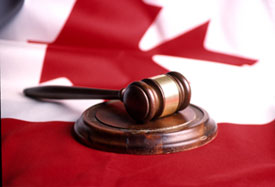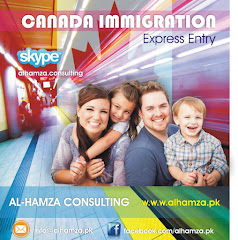Saturday, May 26, 2012
Saturday, May 19, 2012
Get to know Canada - A guide for Canadian Immigration Applicants
Canada may be very different from your home country, which means there is a great deal to learn about and explore before you arrive here. These pages will introduce you to important features of this country, such as the Canadian climate and way of life.
Land and weather
An enormous landmass
Canada is a huge country. It has a total land area of 9,984,670 square kilometres, making it the second largest country in the world.
The longest distance north to south (on land) is 4,634 km, from the northern tip of Nunavut to the southern tip of Ontario. The longest distance east to west is 5,514 km from the eastern tip of Newfoundland and Labrador to the western tip of the Yukon Territory where it borders with Alaska.
To help you understand Canada’s size, consider this: it takes seven days to drive from Halifax, Nova Scotia to Vancouver, British Columbia. To fly from Halifax to Vancouver takes seven hours. More proof of this country’s size: Canada has six separate time zones—Newfoundland, Atlantic, Eastern, Central, Mountain and Pacific.
Canadian provinces and territories
Canada is made up of 10 provinces and three territories. It can be divided into five regional areas:
- The East, also called the Atlantic region, includes the provinces of Newfoundland and Labrador, Nova Scotia, New Brunswick and Prince Edward Island.
- The Central region includes the provinces of Quebec and Ontario.
- The Prairies includes Manitoba, Saskatchewan and some parts of Alberta.
- The West includes most of Alberta and British Columbia.
- The North is made up of the three territories—Nunavut, Yukon and the Northwest Territories.
- Each province and territory has its own capital city where the provincial or territorial government is located.
Home to natural resources
Canada’s forests, its wildlife, protected areas and water are well known around the world. Canada has more than 71,500 known species of plants and wild animals. It contains 20 percent of the world’s remaining wilderness and 10 percent of the world’s forests. Canada has seven percent of the world’s renewable freshwater supply and 25 percent of the world's wetlands. Canada also has the longest coastline in the world.
People
Where people live
Although Canada has a huge landmass, most of its 31 million people—80 percent—live in towns and cities in the southern areas of the country. Most of Canada’s population lives within 250 km of the United States border.Canada has 25 cities with populations of more than 100,000, but which account for less than one percent of Canada’s landmass. With 31 million people, Canada is the 33rd largest country in the world in terms of population.
Government
Democracy preserves people’s rights
Canadians value their right to vote and to decide who will govern their country. Canada is a democracy. This means Canadian citizens have many rights—and the power to change laws and the way governments at all levels work.Canadians do this by electing people to act for them at the federal, provincial and territorial, and municipal levels. These people, called representatives, form the government and must respect the laws of the country.
With rights come responsibilities
To preserve their rights, Canadians must also live up to certain responsibilities, such as to obey laws and to respect the rights and freedoms of others. It is also an important responsibility to support Canada’s democratic system by voting in elections.Laws
Laws maintain order
Canada is governed by a system of laws. These laws are created by governments that are chosen by the people. Laws in Canada apply to all people, including the police, judges, political leaders and those who work for the government.The main reason Canada has laws is to keep society well ordered, to make sure there is a peaceful way to settle disputes and to express the values and beliefs of Canadian society.
In Canada, you are presumed innocent until proven guilty.
Equality under law
We call our system of laws the justice system. Everyone in Canada, whether they are a citizen or a permanent resident, is equal under the justice system. In Canada, women can have the same jobs as men and all the same responsibilities. People in Canada are not given better jobs because of their name, the amount of money they have, their social class or their sex.Some important laws that may apply to your family:
- Children under 12 years of age cannot be left at home alone or care for younger children.
- All children aged six to 16 must receive some form of education.
- Depending on which part of Canada you live in, you must be either 18 or 19 years old to buy or drink alcohol.
- It is against the law to use, buy or sell addictive drugs such as marijuana, heroin or cocaine.
- It is against the law to make any kind of sexual remarks or advances if the other person is not receptive.
- It is against the law to hit anyone, including your spouse or children, either in the home or in public.
What happens if you do not obey the law?
If you break a law in Canada and the justice system finds you guilty, there will be consequences. For minor offences such as theft and dangerous driving, you may have to pay fines, do community service and spend a short time in prison. For more major offences, such as hurting someone, you may go to prison for a longer time. For serious offences, such as killing someone, you may go to prison for life.Your duties under the law
Every resident of Canada must report to the police any crimes that they know about or that they see happen. Canadian residents may also be asked to help the criminal justice system by sitting on a jury. To sit on a jury, you must be a resident of the province where the court case is being heard and also be at least 18 years of age. Rules about juries vary among provinces and territories.Human rights
Canadian citizens and residents have rights
It is important for you to learn about your rights and duties in Canada. You should also know how important the Canadian Charter of Rights and Freedoms is to what we believe and how we live in this country.The Charter protects your rights
The Canadian Charter of Rights and Freedoms is part of Canada’s Constitution and protects you from the moment you arrive in Canada. It sets out the values that Canadians live by and describes the kinds of personal human rights and freedoms we can expect in this country. Some of those rights and freedoms include:- The right to life, liberty and personal security
- Freedom of conscience and religion
- Freedom of thought, belief, opinion and expression, including freedom of the press and other media
- Freedom to hold peaceful meetings
- Freedom to join groups
- Protection from unreasonable search or seizure and unjustified detainment and imprisonment
- The right to be presumed innocent until proven guilty
- The right to retain and instruct counsel (a lawyer) without delay
- The right to a fair trial, through due process of law
- The right to equal protection and benefit under the law, without discrimination
Rights come with responsibilities
People who live in Canada are expected to understand and obey Canadian laws, allow other Canadians to enjoy their rights and freedoms and help preserve Canada's multicultural heritage.It is also important for Canadians to become informed about politics and help to improve their communities and the country.
Citizens of Canada have other rights and freedoms, such as the right to vote in elections. To learn about these rights, see the Canadian Charter of Rights and Freedoms.
Also, please Like our Facebook Fan Page for Immigration Updates |
| http://www.facebook.com/alhamza.pk |
Subscribe to:
Posts (Atom)













